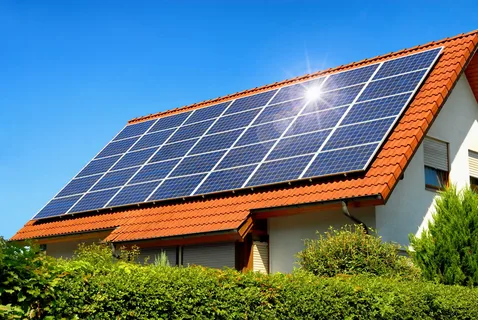How Smart Solar Systems Are Transforming Energy in Europe

Introduction
The Europe Smart Solar Market is growing rapidly as the region accelerates its transition towards digitalized, efficient, and sustainable solar energy systems. Smart solar solutions integrate advanced technologies—such as IoT, AI, machine learning, data analytics, smart sensors, and cloud connectivity—into solar power infrastructure to enhance energy generation, monitoring, consumption, and storage efficiency. These systems enable real-time performance tracking, automated fault detection, predictive maintenance, and optimized energy distribution across residential, commercial, and utility-scale solar installations. Europe’s ambitious climate goals, supported by the European Green Deal, Fit for 55 policy, and increased investments in renewable energy, are fueling demand for smart solar infrastructure. The market is projected to grow at a CAGR of around 14–16% over the forecast period, driven by rapid digitalization of energy systems, rising electricity costs, and the shift toward smart grids, smart cities, and decentralized clean energy solutions.
Market Drivers
The strongest driver of the Europe Smart Solar Market is the region’s commitment to climate neutrality by 2050. Growing solar power installation capacity, combined with rising integration of digital technologies, is accelerating adoption of smart solar solutions. High electricity prices across Europe are encouraging consumers and businesses to adopt smart solar systems for better energy efficiency and cost savings. Government support through tax incentives, grants, and energy modernization programs also plays a key role. The development of smart grids and smart metering infrastructure further strengthens the market, enabling two-way communication between consumers and utilities for real-time energy management. Increasing use of energy storage and hybrid solar systems, combined with demand for grid resilience and reduced carbon emissions, is driving smart solar adoption across residential, industrial, and commercial sectors. Additionally, rapid growth in electric vehicle (EV) usage and need for smart solar-powered EV charging stations further support market expansion.
Market Challenges
Despite strong growth, the Europe Smart Solar Market faces several challenges. High initial installation costs for smart solar systems, including smart inverters, sensors, meters, and software integration, can discourage adoption among cost-sensitive consumers. Integration complexities with legacy energy systems and compatibility issues may delay digital transformation, especially for older solar installations. Cybersecurity concerns arise as smart solar devices and connected grids become more vulnerable to cyber threats. Data privacy and secure energy management remain crucial concerns for regulators and users. Shortage of skilled professionals with expertise in smart solar technologies, predictive analytics, and IoT-based energy platforms may restrict large-scale deployment. Additionally, varying regulatory standards across European countries can slow cross-border adoption and technology harmonization.
Market Opportunities
Europe offers significant opportunities for smart solar innovation and expansion. Growing adoption of solar-plus-storage systems combined with AI-driven load forecasting and predictive energy management systems presents strong growth potential. Smart home integration using IoT-enabled solar rooftops, smart appliances, and home energy management systems (HEMS) offers a rapidly expanding consumer segment. Development of community solar projects and peer-to-peer energy trading platforms enabled by blockchain technology provides new business models for decentralized energy. Smart solar solutions for EV charging networks present a fast-growing opportunity, especially in urban and highway infrastructure. The commercial and industrial segment presents a strong market for energy optimization, automated performance analytics, and carbon footprint monitoring solutions. Modernization of aging power infrastructure, along with increasing deployment of smart grids and microgrids, creates additional demand for smart solar technology. Collaboration between solar manufacturers, tech companies, utilities, and government bodies can accelerate innovation and deployment.
Regional Insights
Germany leads the Europe Smart Solar Market due to strong renewable energy adoption, advanced digital infrastructure, and large-scale solar installations. The country’s smart grid initiatives and widespread deployment of smart meters support strong market growth. The UK is rapidly expanding smart solar adoption through smart energy management, rooftop solar incentives, and increasing EV usage. France shows rising demand for smart solar in residential and commercial sectors, supported by digital energy transformation programs. Southern European countries such as Spain, Italy, and Greece show high solar potential and increasing deployment of smart rooftop solar systems due to favorable climate conditions and rising energy costs. The Nordics, including Sweden and Denmark, emphasize grid digitalization, smart metering, and sustainable energy adoption, strengthening smart solar integration. Eastern Europe is gradually adopting smart solar technologies, with Poland and Romania showing increasing solar investments and grid modernization efforts.
Future Outlook
The future of the Europe Smart Solar Market will be shaped by digital energy ecosystems, AI-driven energy intelligence, and decentralized generation models. Smart solar will increasingly integrate with energy storage, EV charging, and smart homes for complete digital energy management. Artificial intelligence will enable self-optimizing solar systems with automated diagnostics, fault prediction, and energy forecasting. Virtual power plants (VPPs) combining thousands of smart solar assets will enhance grid stability and enable consumer participation in energy markets. Blockchain-based peer-to-peer energy trading and dynamic pricing models will empower prosumers to sell excess solar power. Advances in smart inverters, smart batteries, and IoT-enabled energy platforms will further improve system efficiency and reliability. As Europe strengthens its renewable energy roadmap, smart solar systems will play a critical role in enabling a digital, efficient, and carbon-neutral energy ecosystem.
Conclusion
The Europe Smart Solar Market is evolving rapidly as digitalization and clean energy converge to create efficient, intelligent, and sustainable energy systems. Smart solar solutions are transforming how energy is generated, consumed, and managed across residential, commercial, and industrial sectors. While high costs, cybersecurity risks, and regulatory variations pose challenges, advancements in AI, IoT, smart grids, and solar-plus-storage solutions are driving strong growth. With Europe’s ambitious climate goals, rising energy prices, and strong policy support, smart solar adoption will continue accelerating. Companies that focus on innovation, cybersecurity, end-to-end energy intelligence, and scalable smart energy solutions will lead the future of Europe’s smart solar ecosystem.
- Art
- Crafts
- Dance
- Wellness
- Movie & Television
- Adult Entertainment
- Fitness
- Food
- Παιχνίδια
- Gardening
- Health
- Κεντρική Σελίδα
- Literature
- Music
- Business & Finance
- Religion
- Shopping
- Sports
- Theater
- Drinks
- άλλο



